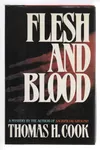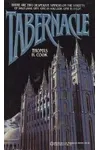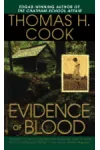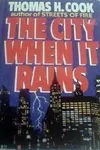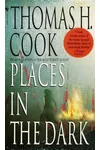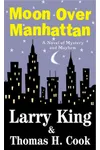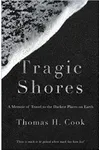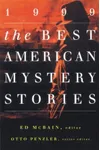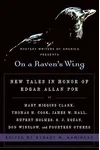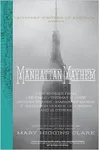Picture an American storyteller who weaves suspense so tight you forget to blink—meet Thomas H. Cook! This Edgar Award-winning author has spent over four decades crafting crime and mystery novels that dig deep into the human psyche. From his breakout hit The Chatham School Affair to the haunting Red Leaves, Cook’s stories are as much about unraveling hearts as they are about solving crimes.
Born in Fort Payne, Alabama, Cook’s journey from small-town scholar to literary luminary is a tale of grit and talent. With a knack for lyrical prose and psychological depth, he’s earned a place among crime fiction’s elite, captivating readers with stories that linger long after the final page.
The Making of Thomas H. Cook
Thomas H. Cook was born on September 19, 1947, in Fort Payne, Alabama, where his early years were steeped in classic literature—think Dickens and Shakespeare, with a dash of Faulkner. He earned a bachelor’s degree from Georgia State College, a master’s in American history from Hunter College, and a Master of Philosophy from Columbia University. Before becoming a full-time writer, Cook taught English and history at Dekalb Community College and moonlighted as a book review editor for Atlanta magazine. His first novel, Blood Innocents, was penned while still in graduate school and published in 1980, marking the start of a prolific career.
Thomas H. Cook’s Unforgettable Stories
Cook’s novels are masterclasses in suspense, blending lyrical prose with psychological insight. His 1996 novel The Chatham School Affair, a slow-burning tale of forbidden love and tragedy in a 1920s Massachusetts town, clinched the Edgar Award for Best Novel. It’s a story that unfolds like a memory, haunting and inevitable. Red Leaves (2005), another standout, explores a family unraveling after a child’s disappearance, earning the Barry and Martin Beck Awards for its gripping narrative.
Works like The Crime of Julian Wells (2012) delve into identity and guilt, following a friend’s quest to uncover why a true-crime writer took his own life. Sandrine’s Case (2013), shortlisted for both Edgar and Barry Awards, is a courtroom drama where a professor rekindles love for his wife while on trial for her murder. Cook’s style—cerebral, atmospheric, and rich with character—sets him apart in a genre often driven by plot alone.
Beyond mysteries, Cook has penned true-crime books like Blood Echoes (1993), nominated for an Edgar, and literary novels such as Elena (1986). His short story “Fatherhood” won the Herodotus Prize, showcasing his versatility across forms.
Why Thomas H. Cook Matters
Thomas H. Cook’s impact lies in his ability to elevate crime fiction into literary art. His focus on memory, morality, and the fragility of human connections resonates with readers and writers alike. Critics praise his poetic narrative power, and his influence is evident in the psychological depth of modern suspense authors. With over 30 books translated into 20 languages, Cook’s global reach underscores his enduring appeal.
His awards—Edgar, Barry, Martin Beck—and nominations for the Hammett, Anthony, and Dagger Awards highlight his mastery. Cook’s stories don’t just entertain; they challenge readers to confront the complexities of guilt, love, and truth, making him a cornerstone of contemporary American literature.
- Birth Date: September 19, 1947
- Key Works: The Chatham School Affair, Red Leaves, Sandrine’s Case
- Awards: Edgar Award (1996), Barry Award (2006), Martin Beck Award
Snag The Chatham School Affair and dive into Thomas H. Cook’s thrilling world of mystery and memory!

